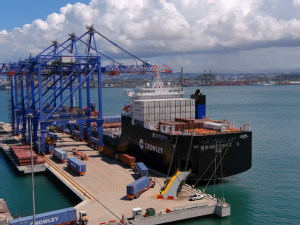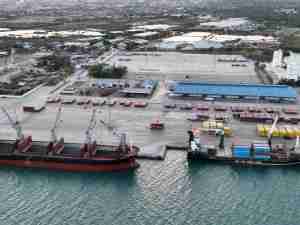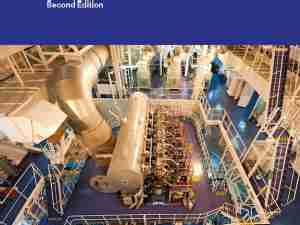A new website has been developed by the Future Fuels and Technology Project (FFT Project), a partnership project between IMO and the Republic of Korea, supporting the development of new regulation within the possible IMO Net Zero Framework to achieve the targets contained in the 2023 IMO GHG Strategy.
With ports and port infrastructure playing an important role in the accessibility and safe use of the fuels and as part of the recent Memorandum of Understanding with the IMO, IAPH has fully supported the portal development with access to its Clean Marine Fuels Working Group suite of safety tools, the jointly-developed Port Readiness tool being developed with WPCAP as well as access to relevant projects of its World Ports Sustainability Program.

The website includes sections on:
- Latest Information: current data on alternative fuels and supply, up-to-date indicative prices, information on the IMO Data Collection System (DCS).
- Future Insight: insights into the readiness, scalability and sustainability of new marine fuels and technologies, including fuel price forecasts, R&D and demonstration projects, as well as information on relevant initiatives in the shipping and energy industries.
- News and Events: a selection of global news, information resources (including reports and journal papers), and information on IMO events related to GHG emissions reduction in international shipping.
- Training and Cooperation: training materials and useful tools on alternative fuels, energy efficiency technologies and other GHG reduction measures.
With technological innovation and the global introduction and availability of zero or near-zero GHG emission technologies, fuels and/or energy sources for international shipping being integral to achieving the overall level of ambition identified in the 2023 IMO GHG Strategy, the portal aims to enhance access to information for all stakeholders involved in IMO’s climate change discussions and to facilitate relevant information sharing.
Other data providers and collaborators involved on the Future Fuels website to date include Ammonia Energy Association, Argus Media, DNV’s Alternative Fuels Insight, Ipieca, Korean Maritime Cooperation Center (KMC), Methanol Institute, OECD, SEA-LNG, SGMF, Zero Emission Shipping Mission and ZESTAs, and the IMO partnership projects GHG-SMART, GreenVoyage 2050(of which IAPH is a partner) and Next-GEN. Current information on the website is sourced from a range of stakeholders and data providers who have joined the initiative in its early stages. Other data providers are invited to join this collaboration.











